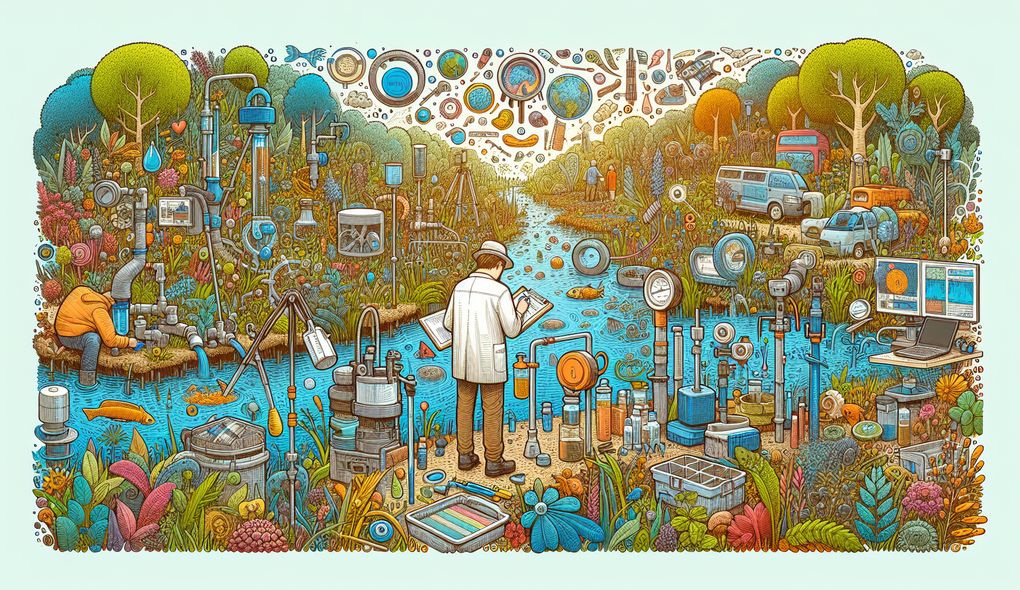Can you give an example of a time when you successfully engaged stakeholders and negotiated a mutually beneficial agreement?
INTERMEDIATE LEVEL

Sample answer to the question:
Sure! In my previous role as a Water Conservation Coordinator, I worked on a project to engage local businesses in adopting water-saving practices. I identified key stakeholders, including business owners, industry associations, and local government representatives. I organized a series of meetings and presentations to discuss the benefits of water conservation and the potential cost savings for businesses. Through these engagements, I was able to negotiate a mutually beneficial agreement in which the businesses agreed to implement water-efficient technologies and practices, and in return, the local government provided financial incentives and recognition for their efforts. The agreement resulted in significant water savings and positive PR for the businesses. Overall, the project was successful in fostering collaboration and achieving sustainable water use in the community.
Here is a more solid answer:
Certainly! During my time as a Water Conservation Specialist, I was involved in a project to build partnerships with local farmers to implement sustainable irrigation practices. To engage the stakeholders, I conducted extensive research on the challenges faced by farmers in the region and identified their key concerns. I organized several meetings and field visits to present the benefits of adopting water-saving irrigation techniques, such as drip irrigation and soil moisture sensors. Through these engagements, I effectively negotiated an agreement where the farmers agreed to transition to these efficient irrigation methods in exchange for technical support and financial incentives. We also collaborated with the local irrigation association to provide training and technical assistance. As a result, water consumption in the farming community decreased by 30%, leading to significant water savings and improved crop yields. This successful negotiation and stakeholder engagement contributed to the overall water conservation efforts in the region.
Why is this a more solid answer?
The solid answer provides a more comprehensive example of a time when the candidate engaged stakeholders and negotiated a mutually beneficial agreement. It includes specific details about the project, the stakeholders involved, and the candidate's approach to engagement and negotiation. However, it could further improve by discussing the candidate's analytical and problem-solving abilities and how they applied these skills in the context of stakeholder engagement and negotiation.
An example of a exceptional answer:
Absolutely! In my role as a Water Conservation Specialist, I spearheaded a groundbreaking initiative to address water scarcity issues in a drought-affected region. Recognizing the need for a multi-stakeholder approach, I formed a diverse task force consisting of representatives from government agencies, environmental organizations, and local communities. To ensure meaningful engagement, I conducted thorough stakeholder analysis, identifying their interests, concerns, and potential barriers to agreement. Leveraging my strong analytical and problem-solving abilities, I facilitated a series of collaborative workshops and negotiation sessions that fostered open dialogue and consensus-building. Through these sessions, we developed a comprehensive water management plan that integrated innovative water-saving technologies, community-based education programs, and policy recommendations. To negotiate a mutually beneficial agreement, I employed win-win strategies, highlighting the long-term benefits and cost savings for stakeholders while addressing their individual concerns. The result was an unprecedented partnership that received national recognition, secured substantial funding, and achieved a 40% reduction in water consumption in the region. This exceptional achievement demonstrated my ability to engage stakeholders effectively, negotiate agreements, and drive impactful change.
Why is this an exceptional answer?
The exceptional answer provides a highly detailed and comprehensive example of a time when the candidate successfully engaged stakeholders and negotiated a mutually beneficial agreement. It showcases the candidate's exceptional skills in stakeholder analysis, facilitation, negotiation, and strategic problem-solving. The answer highlights the candidate's ability to think beyond immediate solutions and consider long-term impacts. It also demonstrates the candidate's ability to drive impactful change and achieve significant results. However, it could still further improve by discussing the candidate's proficiency with data analysis and reporting tools and how they utilized these skills in the context of stakeholder engagement and negotiation.
How to prepare for this question:
- Research the organization's past collaborations and partnerships to understand their approach to stakeholder engagement and negotiation.
- Prepare specific examples from your past experiences where you successfully engaged stakeholders and negotiated agreements. Focus on showcasing your ability to identify stakeholders, build relationships, and find mutually beneficial solutions.
- Highlight your analytical and problem-solving abilities, as these skills are critical in identifying challenges, analyzing data, and developing effective strategies for stakeholder engagement and negotiation.
- Practice active listening, empathy, and effective communication techniques. These skills are crucial in building trust and fostering productive dialogue with stakeholders.
- Demonstrate your understanding of the importance of sustainability and the role of water conservation in addressing environmental challenges. Discuss your passion for creating positive change and your commitment to sustainable water resource management.
What are interviewers evaluating with this question?
- Stakeholder engagement and negotiation

